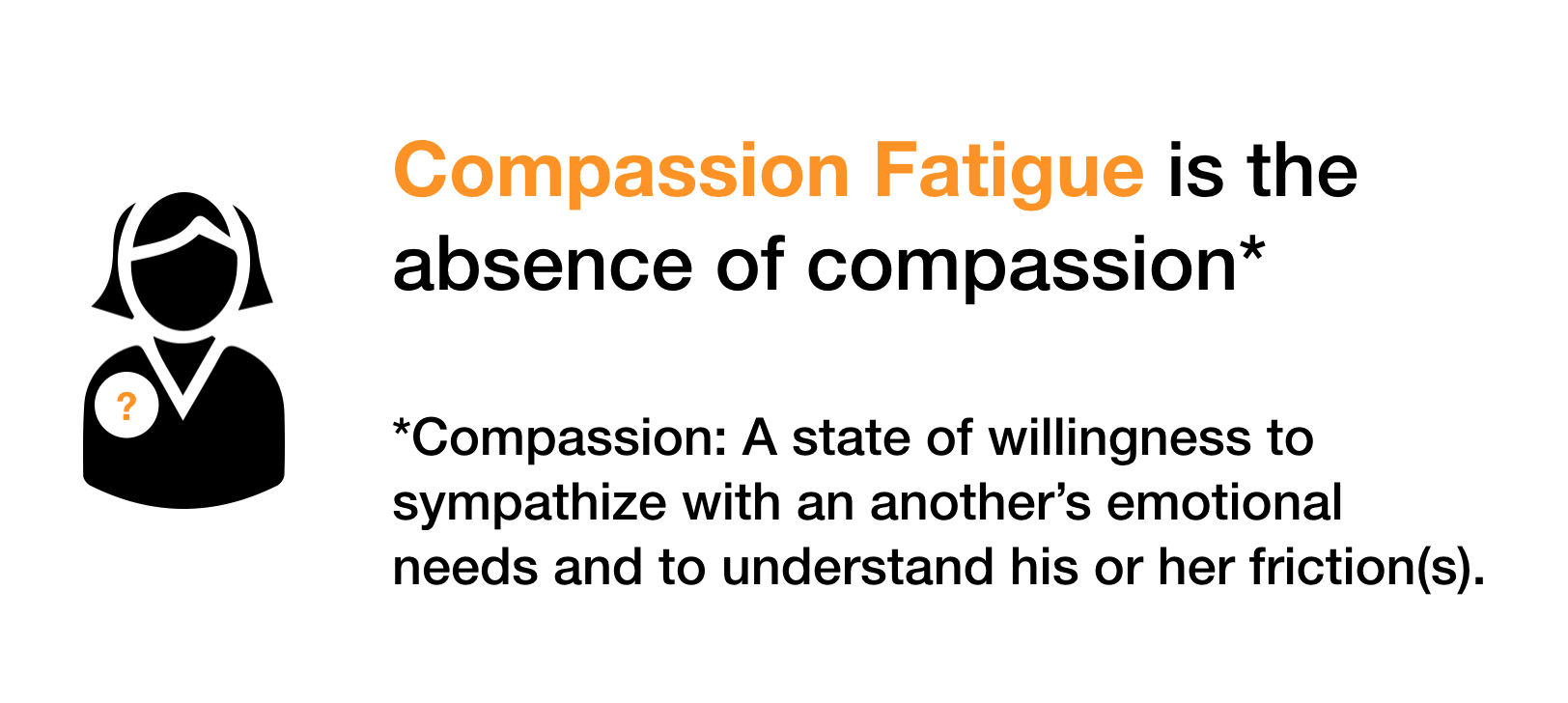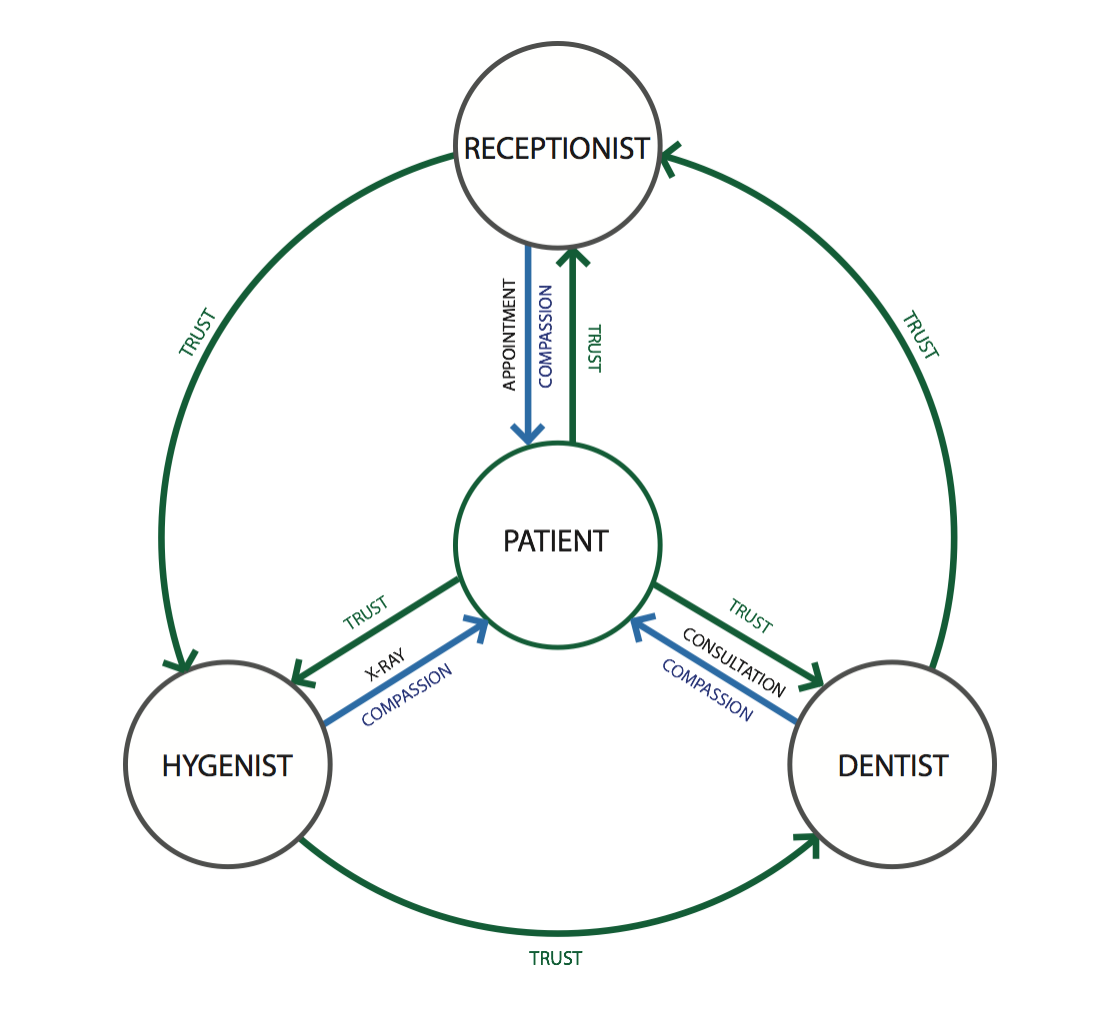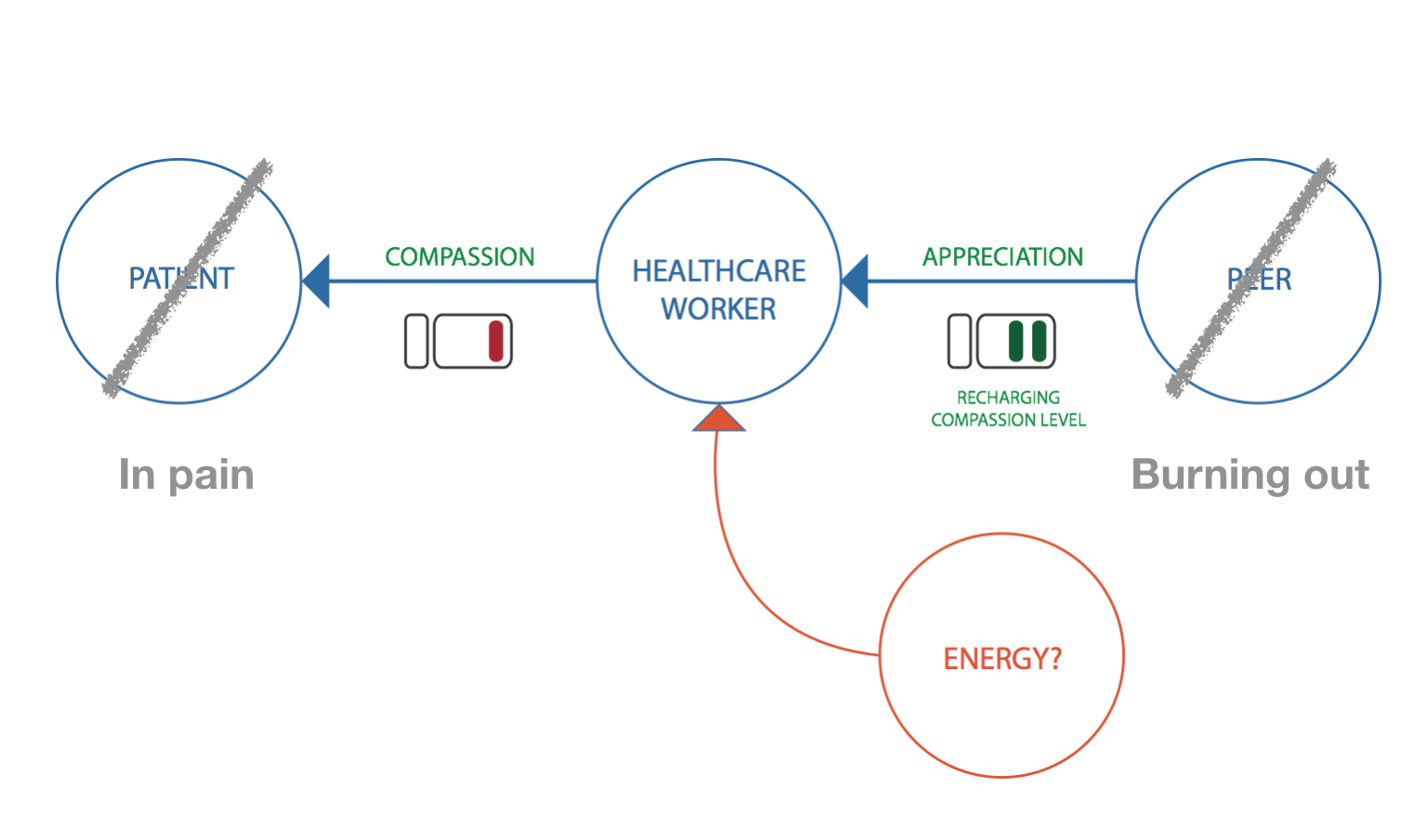
Francis Park and Namhee Kwak

Nurses, doctors and front-line healthcare workers are suffering from compassion fatigue

Trust is evident through relationships built based on compassionate service

In the healthcare system relationships are tied by trust and compassion

Another input of energy is needed to intervene before the compassion fatigue
What if preventing compassion fatigue increased trust between patients and healthcare workers?
Defining how compassion plays a role in building trust and forming relationships between patients and the healthcare system was our initial challenge. However, our investigation gave insight to a greater problem in the system - Compassion Fatigue. Also known as the “burnout syndrome,” Compassion Fatigue is an alarming issue in healthcare industries. Nurses, doctors, and other front-line healthcare workers are suffering from a tremendous amount of both physical and emotional stress each day due to interactions with patients frustrated and in pain.
We zoomed in on the relationship between our stakeholders: a healthcare worker, patient, and peer. We cannot rely on the patient and peers, as they are unstable energy sources. Patients may be in pain and peers may be suffering from burnout as well. Therefore, we needed another source of energy and were inspired by the concept of a third space; we propose an anti-stress hub just a few steps away from offices within the hospital for busy healthcare workers. The hub is designed with two aspects of de-stressing: relieving and recharging. It consists of an organic and open structure, appreciation messages visually represented throughout the interior design, and a food bar to recharge.
The Anti-Stress Hub’s intended outcome is a space that benefits healthcare workers so they are able to relieve stress and recharge energy, with the help of visual expressions of gratitude and appreciation.